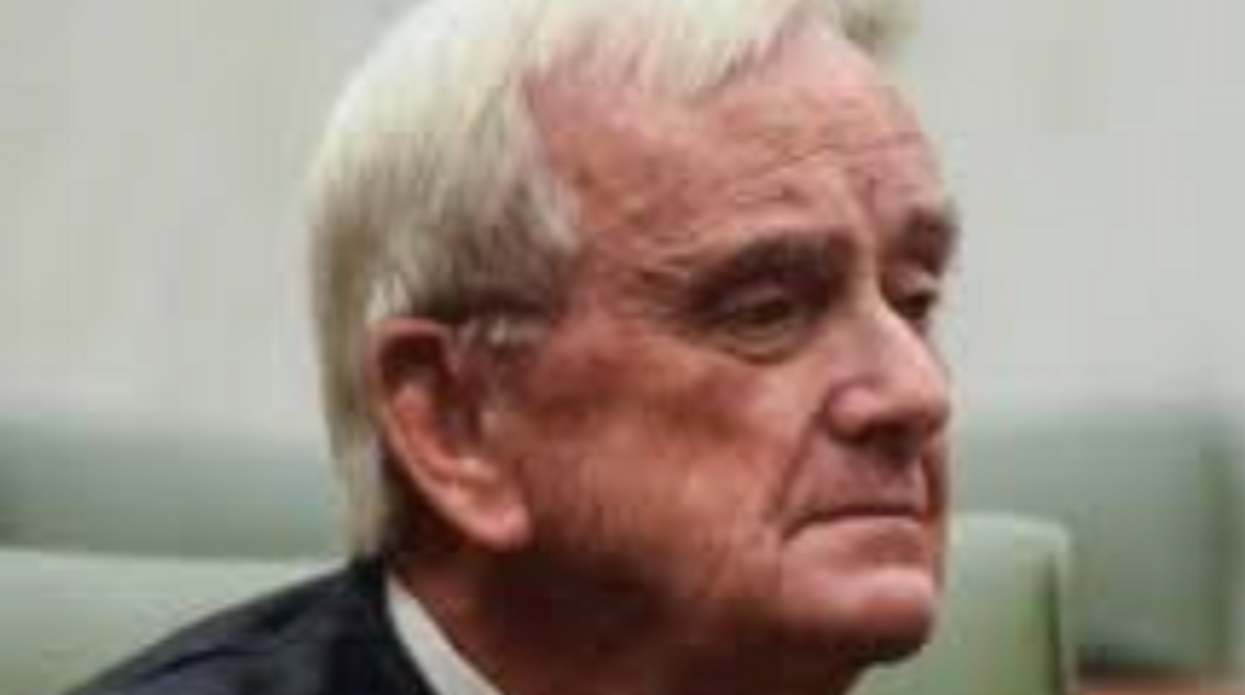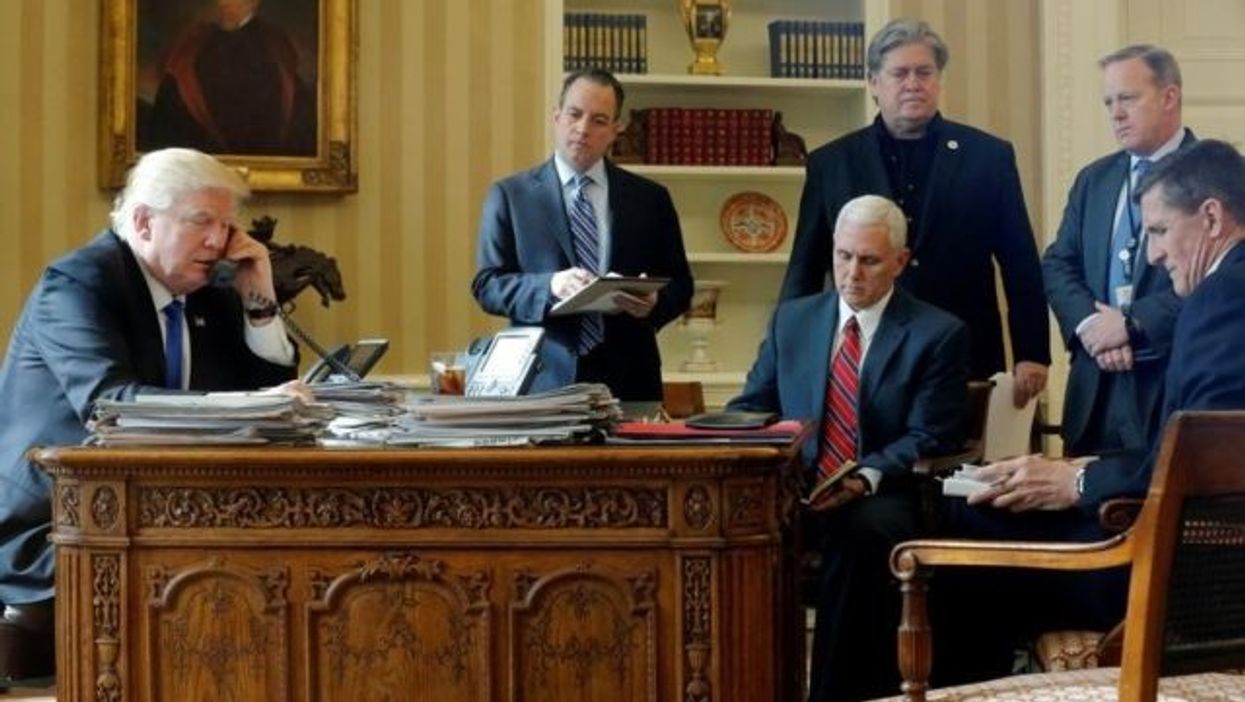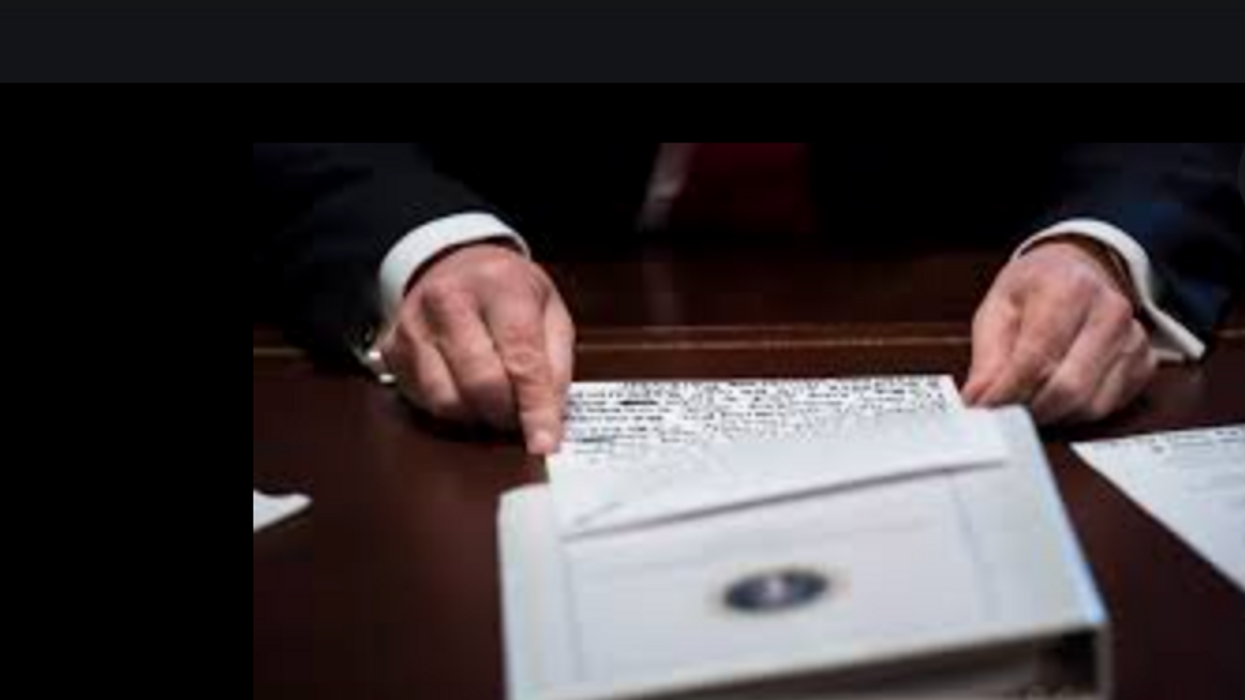Revealed: Boxes Of Documents We Didn't Know Trump Took To Bedminster
It was a big night for CNN, out with a story about document boxes being loaded onto a Trump plane bound for Bedminster, New Jersey, on the same day the Department of Justice showed up to receive a folder of top secret documents from a Trump lawyer who certified they were the only secret documents she and lawyer Evan Corcoran could find.
According to an interview by CNN with former Trump valet Brian Butler, referred to six times in the classified documents indictment as “Trump Employee #5,” the boxes were loaded onto the Trump plane on June 3, 2022, as Trump’s lawyers, Christina Bobb and Evan Corcoran, were meeting with Jay Bratt, the prosecutor from the Department of Justice in charge of the classified documents case. Christina Bobb famously signed a certification to the DOJ that a “diligent search” had been conducted at Mar-a-Lago, and that the 31 documents being handed over that day were the sum total of all the classified documents that had been found.
Two months later, in August, FBI agents would execute a search warrant and discover more than 100 additional top secret documents in Trump’s private office, including several marked with the highest classification, “Top Secret/SCI,” or “Top Secret – Secure Compartmented Information.”
Former valet Butler told CNN that he was surprised to get a phone call from Trump’s “body man,” Walt Nauta, on June 3, asking if he could borrow one of Butler’s Cadillac Escalade SUV’s to help carry material to the West Palm Beach airport to be loaded onto a Trump airplane. Butler was told that Trump and his family were flying to Bedminster for the summer that day. Butler told CNN he was not usually called upon to move luggage to the private Trump jet and thought it was also unusual that Nauta asked for the favor “in a guarded way,” CNN reported.
Butler used his own SUV to carry Trump family luggage to the airport, while Nauta and Carlos De Oliveira, both of whom were indicted with Trump, used the Escalade he had loaned to Nauta to move the rest of the material. “They were the boxes that were in the indictment, the white bankers boxes. That’s what I remember loading,” Butler told CNN.
Butler described his relationship with Nauta as “best friends,” at least until questions about the classified documents found by the FBI at Mar-a-Lago began coming up. Butler told CNN that on one of the frequent “nightly walks” he took with Nauta around their neighborhood in West Palm Beach, Nauta told him that he, Nauta, Butler, and De Oliveira were “all dirty” when it came to the boxes they had moved around inside of Mar-a-Lago and to the Trump airplane on June 3. De Oliveira repeatedly urged Butler to sign up with the same attorney Trump had provided to himself and Nauta, but Butler demurred, choosing instead to hire a former U.S. Attorney in Florida, Jeffrey Sloman. Butler met “repeatedly” with prosecutors for the office of Special Counsel Jack Smith, according to CNN.
In one interview, Butler told prosecutors about a time he was driving Australian billionaire Anthony Pratt and his chief of staff in the Spring of 2021 when he heard Pratt talking about secrets of U.S. and Russian nuclear submarines he had heard from Trump while he was visiting Mar-a-Lago. Pratt was a paid member of the Trump club at the time. It was on May 6, 2021, that the National Archives first formally requested that Trump turn over any and all classified and non-classified documents Trump had removed from the White House when he left office. On May 8, the British newspaper, the Daily Mail, had a photographer at the West Palm Beach airport who took photographs of Trump boarding a private jet to fly to his golf club in Bedminster, New Jersey. The photographs show several Trump aides loading a half dozen or more bankers boxes of documents into the jet.
On July 21, 2021, just two months later, Trump showed a top secret military “plan of attack” on Iran to an interviewer who was working on a book with Trump’s former chief of staff, Mark Meadows. The interview took place at the Trump golf club in Bedminster, New Jersey.
Before Butler signed with his own private attorney, he was witness to two conversations between Trump and De Oliveira when Trump asked De Oliveira, “Are we good?” After one conversation De Oliveira had with Trump on the phone in the presence of Butler, he said Trump had promised to get him a lawyer. In another conversation Butler recounted to prosecutors, Nauta asked him “to make sure Carlos (De Oliveira) is good.” Butler told CNN that he twice assured Nauta that De Oliveira was “loyal and wouldn’t do anything to hurt his relationship with Trump.” It was after that conversation that Butler decided to get his own lawyer and broke contact with the two men who ended up being indicted with Trump.
Based on the new CNN report, we now know that boxes of documents were moved from Mar-a-Lago to Bedminster twice – once in May of 2021 immediately after the National Archives had requested that Trump turn over documents he took from the White House, and again in June of 2022, on the very day the DOJ had shown up at Mar-a-Lago to take possession of what they were told were all the classified documents being held there.
What happened to the classified documents Trump took with him to Bedminster is not known. It is also unknown why the FBI never searched the Trump New Jersey golf club.
Trump has recently filed motions to dismiss the Mar-a-Lago indictments based on spurious claims of “absolute immunity” and an entire made-up claim that the Presidential Records Act permitted him to possess classified documents. Special Counsel Smith has opposed both motions. The judge in the case, whose previous decisions in the case have been overturned twice by the 11th Circuit Court of Appeals, has yet to rule on the Trump motions to dismiss.
Lucian K. Truscott IV, a graduate of West Point, has had a 50-year career as a journalist, novelist, and screenwriter. He has covered Watergate, the Stonewall riots, and wars in Lebanon, Iraq, and Afghanistan. He is also the author of five bestselling novels. You can subscribe to his daily columns at luciantruscott.substack.com and follow him on Twitter @LucianKTruscott and on Facebook at Lucian K. Truscott IV.
Please consider subscribing to Lucian Truscott Newsletter, from which this is reprinted with permission.












